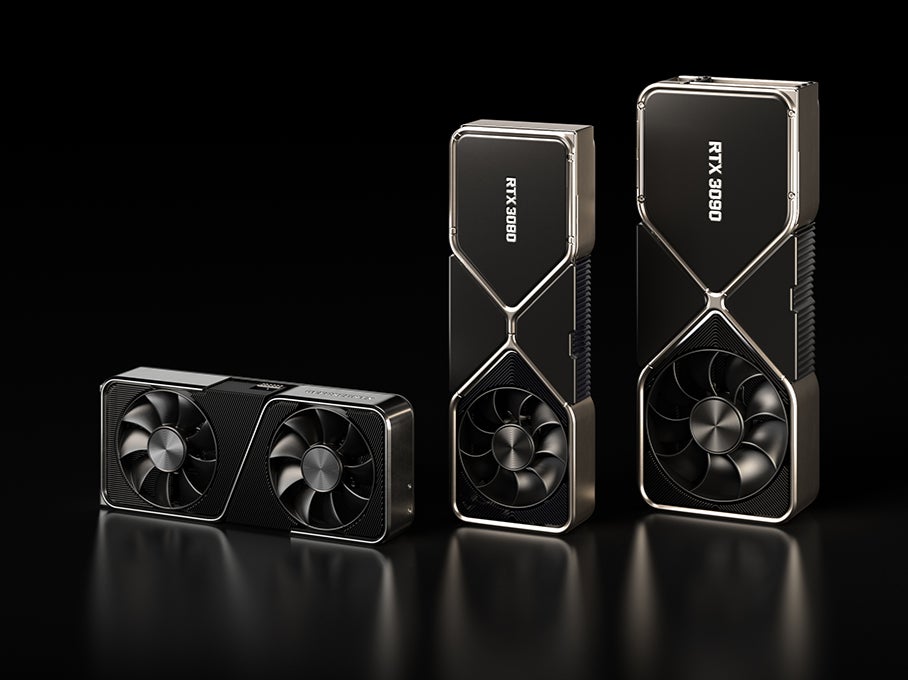Chip shortages causing problems and spiralling prices for PS5 and PCs to continue until next year, Nvidia chief says
Intel is ramping up production over the next nine months, but still believes it could be years to build capacity

Your support helps us to tell the story
From reproductive rights to climate change to Big Tech, The Independent is on the ground when the story is developing. Whether it's investigating the financials of Elon Musk's pro-Trump PAC or producing our latest documentary, 'The A Word', which shines a light on the American women fighting for reproductive rights, we know how important it is to parse out the facts from the messaging.
At such a critical moment in US history, we need reporters on the ground. Your donation allows us to keep sending journalists to speak to both sides of the story.
The Independent is trusted by Americans across the entire political spectrum. And unlike many other quality news outlets, we choose not to lock Americans out of our reporting and analysis with paywalls. We believe quality journalism should be available to everyone, paid for by those who can afford it.
Your support makes all the difference.Nvidia has warned buyers that their new RTX 30-series GPU is likely to remain in short supply for the rest of the year.
This is an issue that has impacted buyers across the technology industry – from those looking to get graphics cards, CPUs, and high-end consoles including the PS5 and the Xbox Series X.
“Overall demand remains very strong and continues to exceed supply while our channel inventories remain quite lean. We expect demand to continue to exceed supply for much of this year”, Colette Kress, executive vice president and chief financial officer of Nvidia, said in an earnings call on Monday.
The chip shortage has been caused by a range of global issues, many of which do not seem likely to be alleviated soon.
The first, and perhaps most obvious, is the coronavirus pandemic. As factories shut down, chipmakers had to rely on their reserves, but a growing work-from-home environment means changing habits and an increasing need or desire for more personal technology.
Another factor is consolidation and outsourcing. While the world once relied on 30 companies to manufacture circuits, but over time that number has largely whittled down to two: Samsung and Taiwan Semiconductor Manufacturing (TSMC), which supply the vast majority of boards.
One also has to contend with the development of computers in car manufacturing, with electronic systems set to account for nearly half of a car’s cost by 2030, while telecom maker Huawei has pointed the finger at the US government’s sanctions against the company.
It seems unlikely that such concerns will be alleviated soon, even with the rollout of vaccine programmes over the world.
While Intel aims to boost production within the next nine months, a proper solution could take years.
“We do believe we have the ability to help,” said company CEO Pat Gelsinger, “[but] I think this is a couple of years until you are totally able to address it,” he said. “It just takes a couple of years to build capacity.”
The result of these factors have been widespread, especially for gaming fans. The new PlayStation 5 console has been so difficult to buy that in Japan it incited a riot, and Xbox Series X and S have been hit by similar problems.
“It is difficult for us to increase production of the PS5 amid the shortage of semiconductors and other components,” Sony’s chief financial officer Hiroki Totoki said after the release of recent results.
“We have not been able to fully meet the high level of demand from customers [but] we continue to do everything in our power to ship as many units as possible to customers who are waiting for a PS5.”
Join our commenting forum
Join thought-provoking conversations, follow other Independent readers and see their replies
Comments